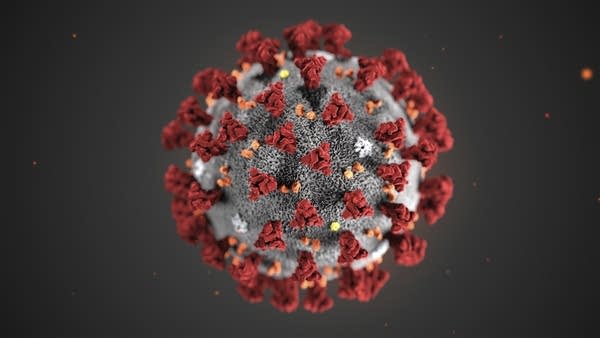Dr. Jon Hallberg answers your COVID-19 questions

Go Deeper.
Create an account or log in to save stories.
Like this?
Thanks for liking this story! We have added it to a list of your favorite stories.
Dr. Jon Hallberg, medical director of the University of Minnesota Physicians Mill City Clinic, joins MPR News host Tom Crann each Tuesday. This week, he answered some of your questions about COVID-19.
What’s the difference between the nasal swab test and the newer antibody test?
So the nasal pharyngeal swab, or the nose swab, detects whether or not a person has the infection now. And one of the concerns is that it has been something like 70 percent sensitive, meaning that up to 30 percent of the time people may be falsely thinking that they don't have COVID-19 when in fact, they do. So, there's a little bit of a concern there. The tests seem to be getting better, and that's our hope. But that tells you whether you have it or not.
The second kind of test, the new one that there's been news about, look for antibodies. It's really kind of looking in the rearview mirror. Did you have the infection before? And there's sort of a sweet spot of about 10 days for our immune system to have a response that we can then measure. If you have a measurable immune response, you could go about your daily life in a way that's different than what most of us are having to do right now.
My son works in a grocery store. Should he leave his clothes outside and shower because of possible exposure? And what about bringing packages into the home?
Well, the thing we know for a fact is that it's transmitted is through droplets from coughing, sneezing, perhaps even laughing and talking. We don't actually have an answer on whether we can get sick from droplets on clothes and packages. It makes a lot of sense to be careful about washing our hands when we open packages and go shopping.
Whether or not a person really needs to leave all of their clothes in the garage, for example, for fear infecting others, that's not clear. It's probably overkill. Of course, if people are working in an intensive care unit with people who have the virus, that's a whole different story.
Should we be wearing gloves?
If a person wears gloves because they feel that by doing so it’s going to be a constant reminder not to touch their face, that may be an OK idea. But the virus does not get into our bloodstream from our fingertips so it really isn't serving a purpose with that. Wearing gloves is not standard advice at this point.
Are people with diabetes or asthma at higher risk because they’re more likely to catch the virus or because their bodies are less capable of fighting the disease. And does it matter if their condition is well-controlled?
All of us are potentially at risk for getting the virus, so there's no way to know who's going to get it and who isn't. It's really about how serious the disease can become in somebody. So for people with chronic disease, that sort of gradation that it's really well-controlled, that person could probably handle an infection better than somebody who isn't well-controlled. We don't know that for a fact, but for anyone who has any kind of chronic condition, keeping it as well controlled as possible is really an important goal right now.
Do you have other questions you want us to answer? Let us know here:
Turn Up Your Support
MPR News helps you turn down the noise and build shared understanding. Turn up your support for this public resource and keep trusted journalism accessible to all.


